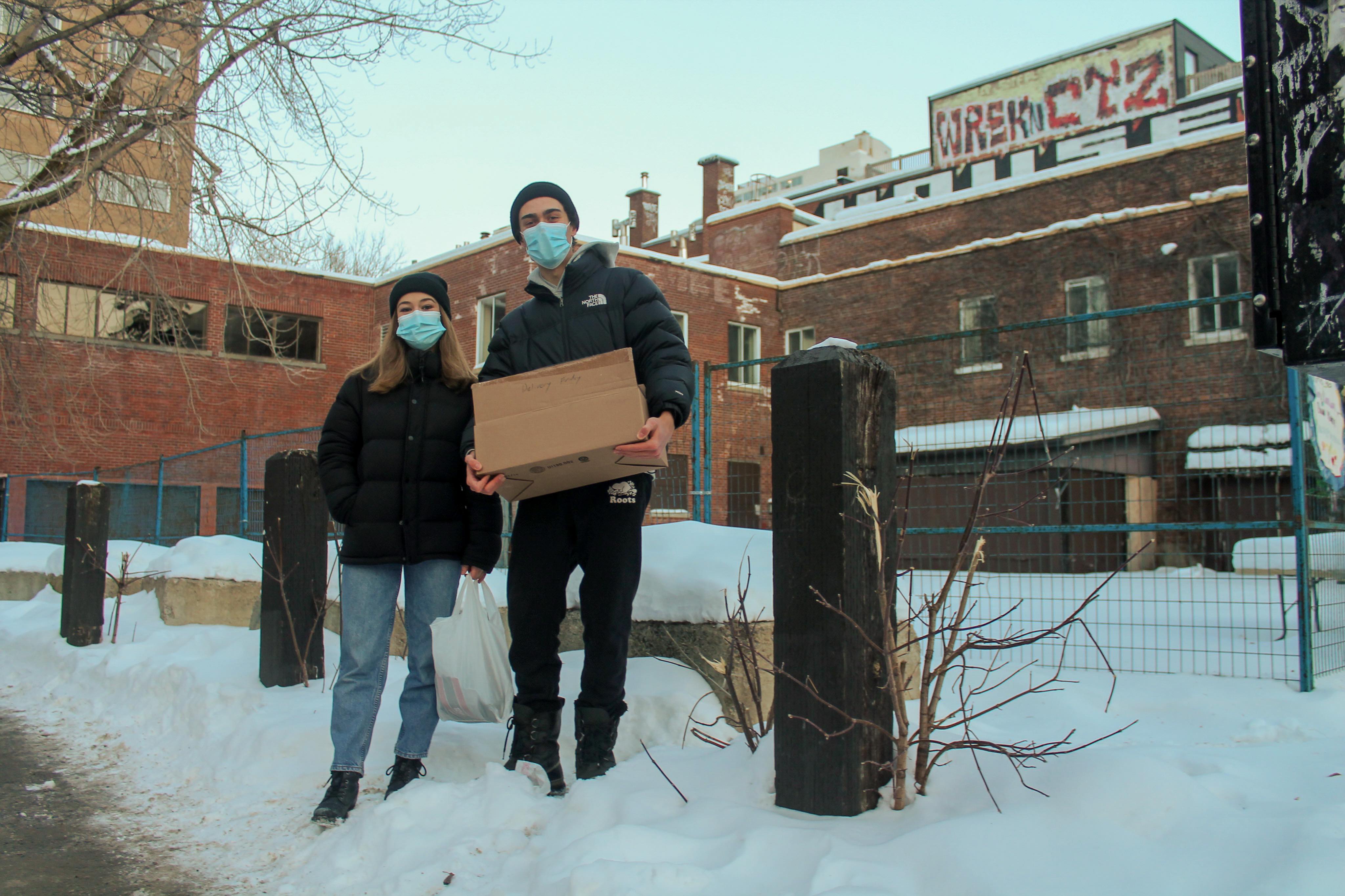When Sophie Hart, U3 Arts, first developed Meals For Milton-Parc, she focussed on providing food and care packages to unhoused neighbours and highlighting the systemic issue of Indigenous overrepresentation in the unhoused population. Since The McGill Tribune last spoke with Hart in early October, the organization has distributed over 1,000 meals to unhoused Milton-Parc community members along with weekly care packages consisting of sanitary supplies, blankets, tents, and winter clothing.
Due to the ongoing pandemic, however, the organization has had to constantly adapt to both the Legault Government’s COVID-19 guidelines and the cold weather. Since the drop in temperatures, Meals for Milton-Parc has been operating within local shelters, using their facilities to prepare food for their meal sharing initiative. Because of the surge of COVID-19 cases in the unhoused community since December, the government moved to limit shelters to operate at 20 per cent capacity. In the months since, Meals for Milton-Parc has shifted gears to find new ways to support and advocate for the unhoused community outside of the shelters.
“Since the outbreak in December, everything has had to change,” Hart said in an interview with the Tribune. “I am so grateful for our incredible volunteers for being so open to the constant changes of our organization and their roles, because there is no way to have a structured plan during COVID-19.”
The initiative is operating with the safety of both their volunteers and the community members they serve in mind. To adjust to the complications of the newly imposed curfew, Meals for Milton-Parc is now handing out care packages three times a week, each containing a $15 gift card, two face masks, and two snacks. On Mondays, Wednesdays, and Saturdays, volunteers walk from Avenue des Pins to Sherbrooke Street, all the way down Parc Avenue, towards the downtown core. Each unhoused community member they come into contact with receives one care package. On these walks, volunteers also check in with community members to ensure that their efforts are best serving their needs.
“This is super important because in this process we are showing our faces and showing that we care, and in doing this, we are hoping to create bonds and a community between housed neighbors and unhoused neighbors,” Hart said.
Hart also discussed the problems that the 8 p.m. curfew presents for unhoused community members. Instead of operating at their typical winter hours, shelters are now closing earlier and many are no longer offering overnight emergency beds due to the new guidelines.
This includes The Open Door, a shelter located in the Milton-Parc neighborhood, which is now mandated to close at 9:30 p.m. While the city has made beds for the unhoused community members available in different locations throughout Montreal, including the East End, they are not accessible to the unhoused Milton-Parc community. As a result, many members have elected to sleep outside instead of leaving their neighborhood. John Tessier, an intervention worker at The Open Door, spoke to the Tribune about the city’s ill-designed plan.
“The problem is that the government has people in offices, with no connections to the people we are serving and who do not know their needs, making the decisions,” Tessier said. “Instead, they should be trusting the people on the ground, the people who are well acquainted with the day to day problems and the needs to make these decisions.”
Since the implementation of these public health regulations, there have been fatal and devastating consequences. On Jan. 16, just hours after The Open Door shelter closed due to public health regulations, Raphael Andre, an Innu unhoused community member, froze to death only a few meters from the shelter. According to Tessier, Andre was the last person out of the shelter everyday for the past week and asked if he could stay overnight on Jan. 16.
“There are so many different layers to this that are so unacceptable,” Hart said. “There is a lack of dignity and respect for our unhoused population and it needs to change on many levels within our community.”
After public scrutiny, the government is allowing The Open Door to remain open overnight starting the week of Jan. 25. However, only 25 beds are allowed to be used, even though the shelter has the capacity to fill their 65 beds while remaining COVID-safe.
To learn more or donate, visit Meals For Milton-Parc’s website.









This pandemic has caused death to those less fortunate. It is our Job to see that homeless people have shelter and food. This article was written so well and I am so proud of our granddaughter Lucy Keller.